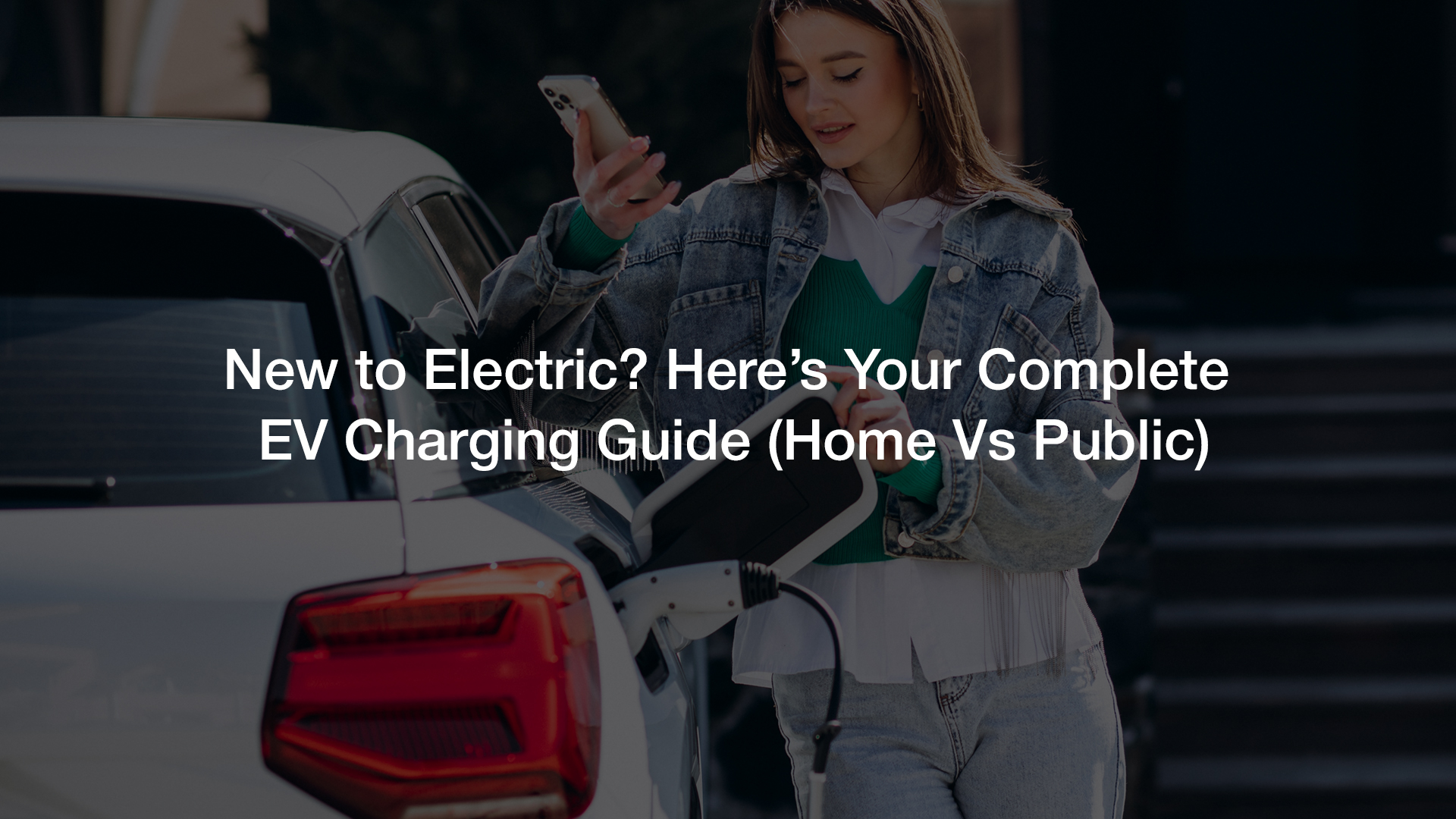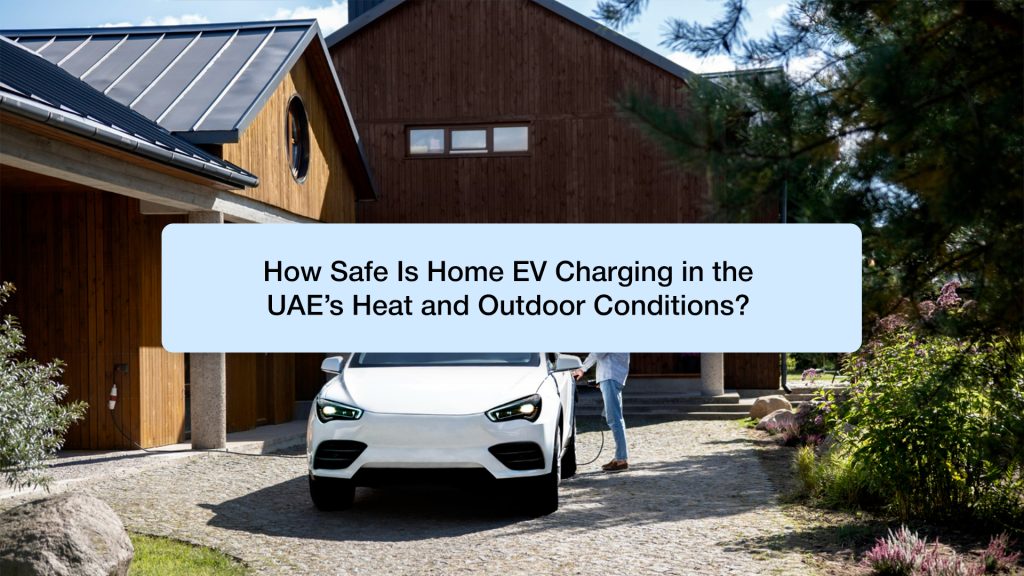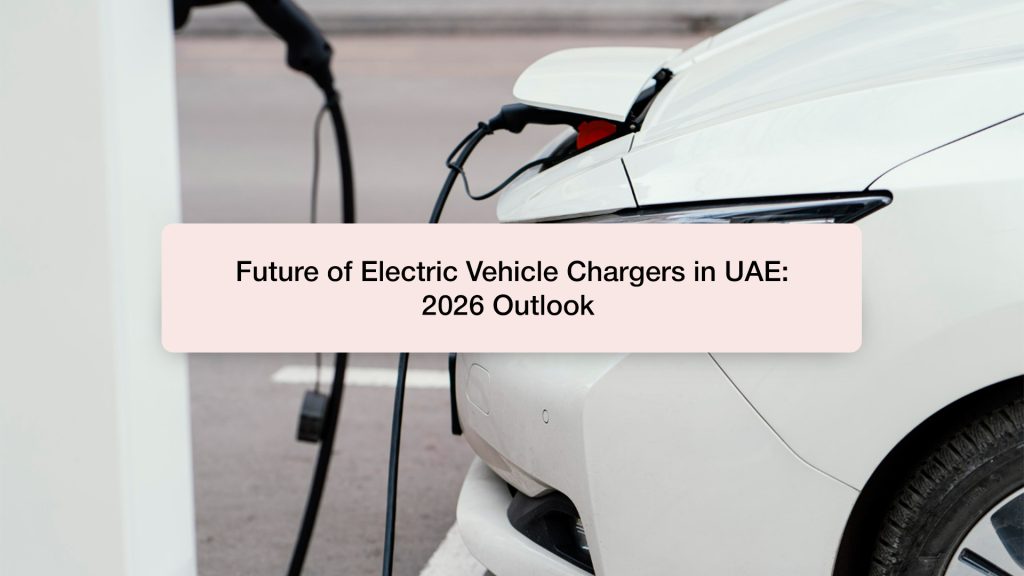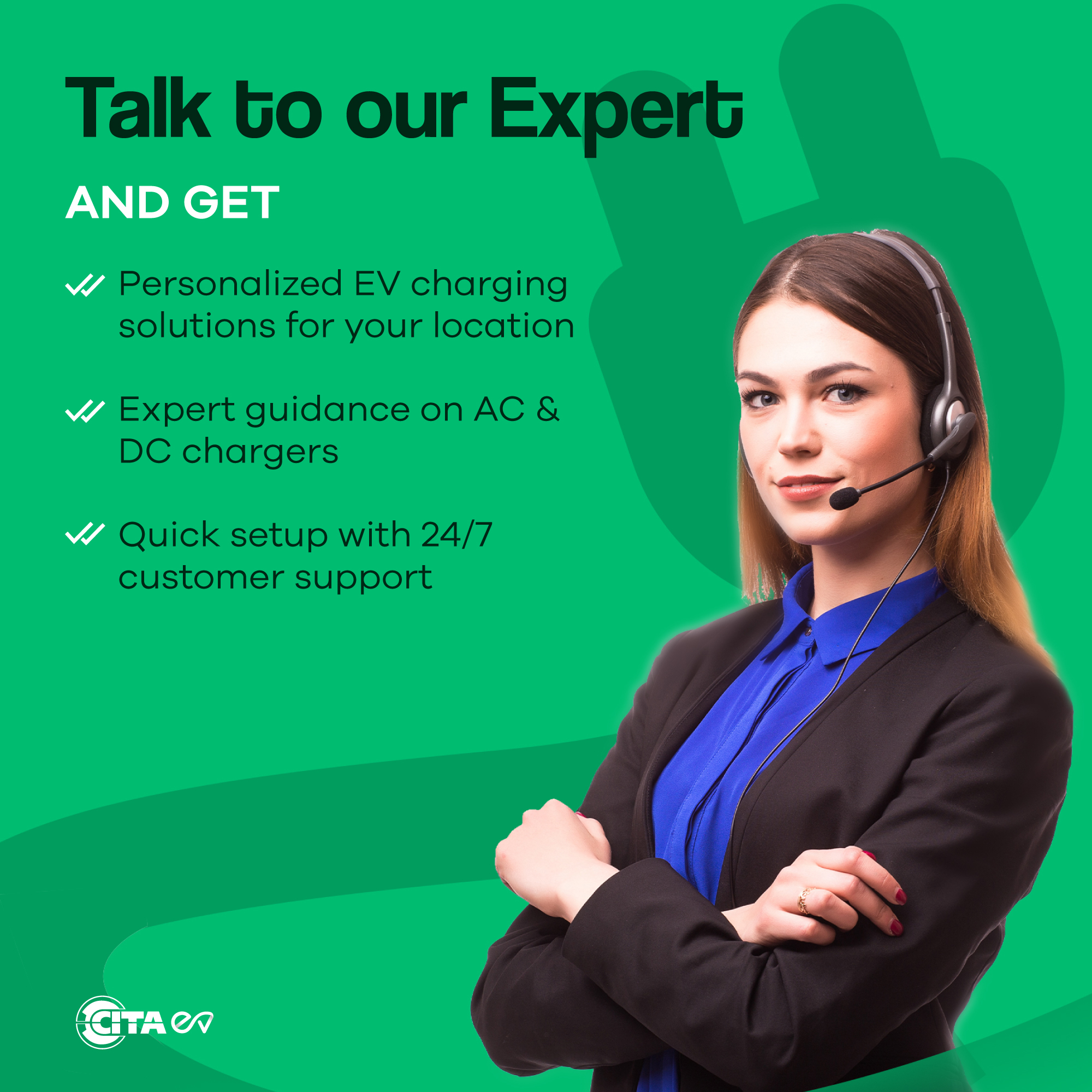Have you ever wondered how EV Charging works in a country like the UAE, where innovation meets luxury on every street? As of 2024, Dubai alone has over 700 public electric vehicle charging stations, and the UAE’s Green Mobility Strategy aims for 42,000 electric cars on the roads by 2030.
Yet despite this forward march, most new EV owners still find themselves puzzled about EV charging – should you install a home ev charger, rely on public ev chargers, or combine both?
Understanding EV Charging: A UAE Perspective
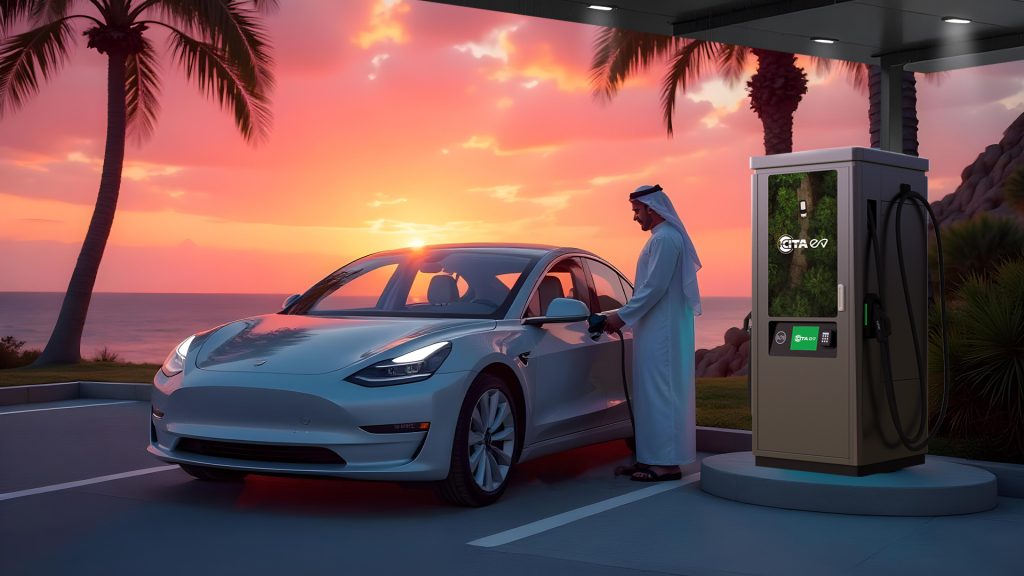
Switching to an electric car is more than just swapping petrol for power; it’s embracing a smarter, cleaner way to drive. But with that comes the responsibility (and opportunity) to understand EV Charging.
In simple terms, EV Charging is the process of replenishing the battery of your electric vehicle. Unlike conventional fuel, which is always delivered at petrol pumps, electricity offers flexibility—you can “refuel” right at home with an ac ev charger, at work, or through the UAE’s expanding network of public electric car charger stations.
In fact, most electric vehicle chargers available in the UAE are rigorously tested and certified by local authorities to ensure reliability and safety — an essential factor given the region’s demanding climate.
Home EV Charging: The Comfort of Charging in Your Own Garage
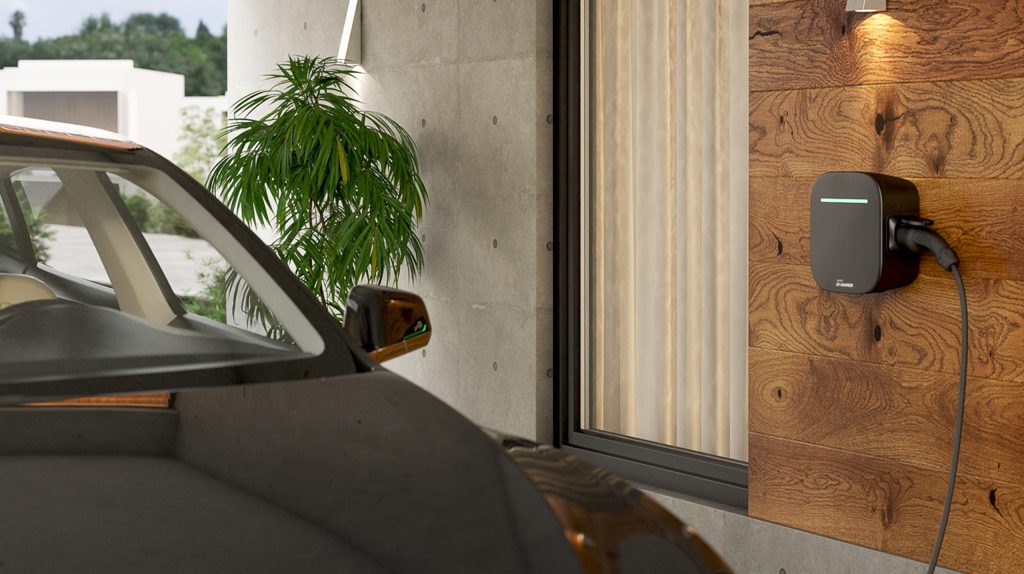
Home EV charging brings unmatched convenience, letting you power up your electric car right in your garage. Skip public queues, enjoy overnight charging, and start every day with a full battery, ready for the road ahead.
What is Home EV Charging?
Home charging typically uses AC EV Chargers, commonly called level 2 chargers. They range from 7 kW to 22 kW capacities, perfect for overnight or top-up charging. Many EV chargers installed in UAE villas and residential buildings are IP65 Rated EV Chargers and IK10 Rated EV Chargers, built to withstand dust, sand, and extreme heat.
Benefits of Home Charging
- Convenience: Plug in your vehicle overnight and wake up to a fully charged battery.
- Cost Efficiency: Residential electricity rates are generally lower, helping you save in the long run.
- Complete Control: No waiting in line or depending on availability. With smart EV charging apps and platforms, you can even schedule charging during off-peak hours.
Who is it Best For?
- Families with set daily driving routines.
- Villas and townhouse owners with dedicated parking.
- Businesses providing company vehicles that return to base daily.
Public EV Charging: Powering Up On-the-Go
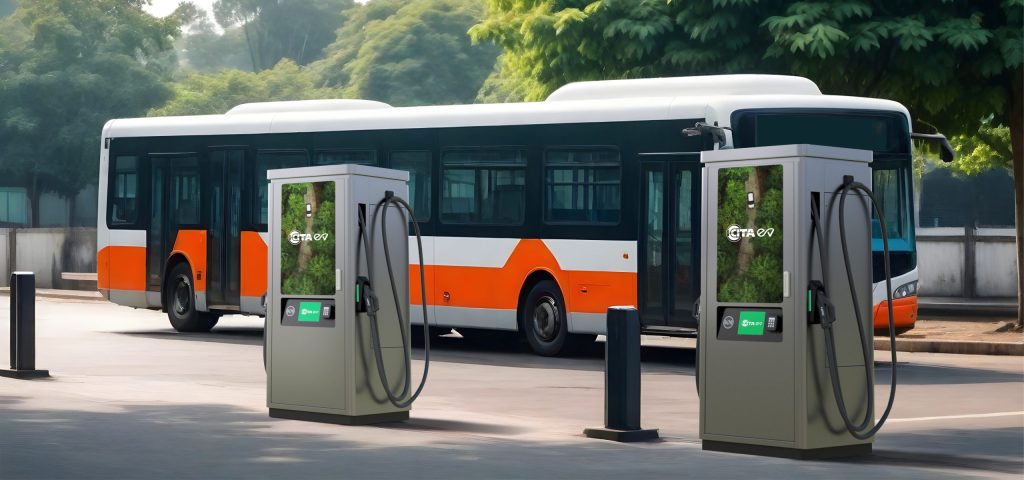
Public EV charging keeps you moving, offering quick, reliable top-ups while you shop, work, or travel. With thousands of stations across the UK, it ensures your electric journeys stay seamless and worry-free wherever you go.
What is Public EV Charging?
Public charging uses a mix of AC EV Chargers and DC EV Chargers. DC charging, also known as fast or ultra-fast charging, ranges from 60 kW to 360 kW—reducing charging time from hours to mere minutes.
Across Dubai and Abu Dhabi, you’ll find Certified EV Chargers at malls, office parks, petrol stations, and even hotels. Many sites now offer 44kW Dual AC Chargers to serve two vehicles simultaneously or Fast EV Chargers that help drivers get back on the road quickly.
Benefits of Public Charging
- Speed: Fast DC EV Chargers can provide 80% charge in 30 minutes or less.
- Flexibility: Ideal for long-distance drivers who need a quick top-up.
- Accessible: The UAE has invested heavily in a robust public network, with plans to expand under initiatives like Smart Dubai and Dubai Clean Energy Strategy 2050.
Who Should Rely on Public Charging?
- Fleet operators or logistics companies with vehicles on constant rotation.
- Apartment dwellers without private parking.
- Visitors or tourists driving rented electric vehicles.
Home Vs Public EV Charging: What’s Better?
| Feature | Home EV Charging | Public EV Charging |
|---|---|---|
| Cost per kWh | Generally lower | Slightly higher (service fees) |
| Charging Time | 4-8 hours (7-22kW AC) | 20-60 minutes (60-360 kW DC) |
| Convenience | Always available, no wait | Depends on station availability |
| Best For | Daily use, overnight charging | Quick top-ups, long trips |
Truthfully, it’s not about choosing one over the other. The most efficient approach combines both: a home ac ev charger for daily needs and public dc charger supplier networks for extended trips.
How the Right EV Charger Benefits UAE Residents and Businesses
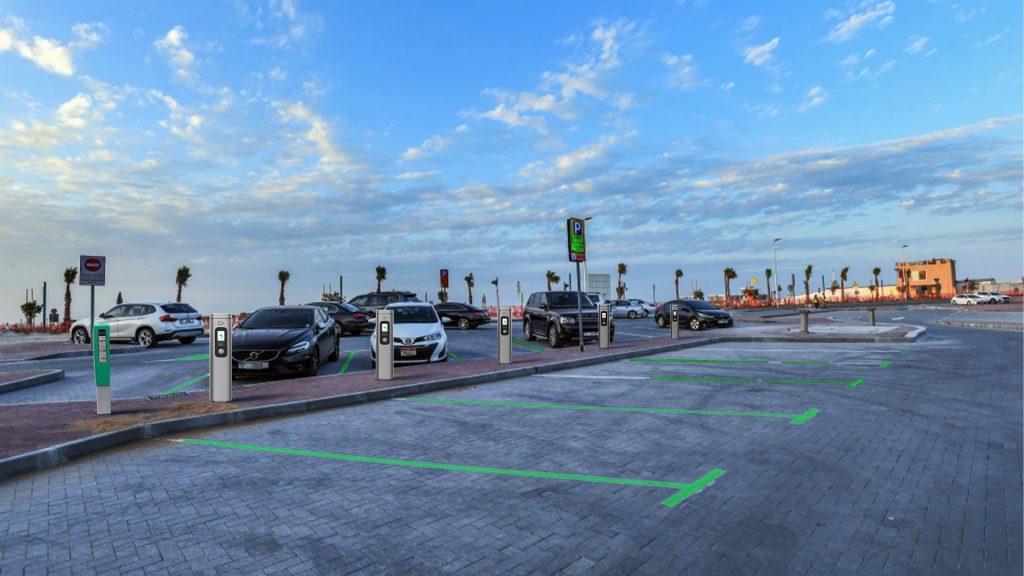
For Residents
- Fleet operators or logistics companies with vehicles on constant rotation.
- Apartment dwellers without private parking.
- Visitors or tourists driving rented electric vehicles.
For Businesses
Commercial complexes, hotels, and shopping malls see huge advantages in offering EV Charging stations. Not only do they attract eco-conscious customers, but with integrated EV Charging software, businesses can track energy use, automate billing, and position themselves as environmentally responsible.
Whether it’s an Approved EV Charger in a hotel parking bay or a bank of Fast EV Chargers at a logistics hub, offering charging facilities enhances a property’s value and customer appeal.
Common Challenges with Home and Public EV Charging
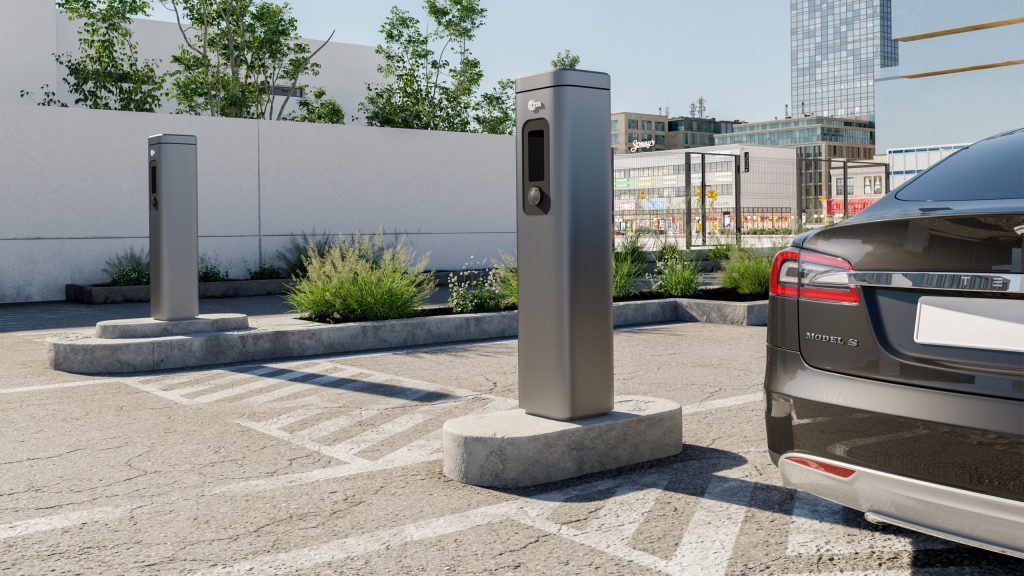
While the UAE’s electric mobility sector is booming, both home and public EV Charging still come with some real-world hurdles. Knowing these challenges—and what to watch for—helps you plan smarter and avoid regrets later.
2) Public Charger Availability and Waiting Time
As more drivers rely on dc ev chargers, finding an open spot at malls or offices can mean delays; pairing home EV charging with real-time locator apps helps you avoid queues and keeps your daily routine hassle-free.
3) Inconsistent Smart Features and Connectivity
Not every smart ev charger lives up to its name—some lack solid apps or glitch on scheduling; choosing models with proven software and strong local support ensures you get the remote monitoring and easy control you expect.
4) Certification and Safety Concerns
Opting for cheaper chargers instead of Approved EV Chargers that meet DEWA or ADQCC standards can bring insurance risks and electrical hazards; always verify certifications so your investment is compliant, safe, and future-proof.
5) Cost of Infrastructure and Upgrades
Installing a system for DC chargers or multiple level 3 EV chargers can mean costly trenching or transformer upgrades; plan budgets realistically and explore scalable solutions that let you expand as your needs grow.
Quick Tips Before You Choose Your EV Charging Setup
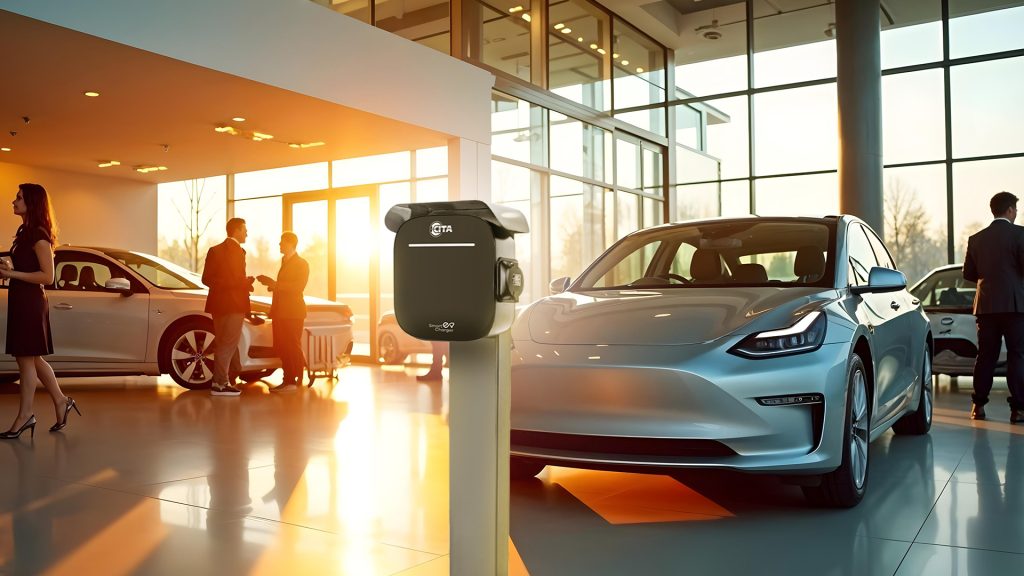
Choosing the right EV Charging setup isn’t just about picking the first charger you see online. Especially in the UAE, where climate, regulations, and future growth matter, taking a thoughtful approach helps you avoid unnecessary costs and keeps your system reliable for years.
Here are some essential tips to consider before making your decision.
1) Check Your Power Supply
Before installing an EV charger, it’s crucial to know the electrical capacity available at your property. Most homes run on single-phase power, while some commercial or villa properties may have three-phase. Your power supply determines the type and speed of charger you can install. Consulting a certified electrician or a Trusted EV charging Company in Dubai will help avoid overloads and ensure safety.
2) Know Your EV’s Charging Compatibility
Not all EVs use the same connector type or charging rate. For example, European models typically use Type 2 connectors, while some older or Asian models may use Type 1. Additionally, your EV’s onboard charger limits how much power it can accept, even if you install a high-capacity charger. Always match the charger specs with your vehicle’s requirements for optimal performance.
3) Decide Between AC and DC Chargers
AC chargers are the most common and perfect for overnight charging at homes or workplaces. They typically range from 3.7kW to 22kW. DC chargers, on the other hand, offer rapid charging and are more suitable for commercial, fleet, or highway use due to their higher power (30kW–150kW+). Choose based on your daily driving habits, charging time expectations, and budget.
4) Consider Smart Features
Modern EV chargers offer features like mobile app control, scheduled charging, load balancing, and usage tracking. These smart features allow you to monitor energy use, schedule off-peak charging for lower bills, and even restrict access with RFID tags. Investing in a smart charger ensures future-proofing as EV ecosystems evolve. It’s not just about charging—it’s about charging smarter.
5) Plan the Installation Spot
Think ahead about where your charger will be placed—whether in a garage, carport, driveway, or parking lot. The location should be weather-protected, near your EV parking space, and close to your power panel to reduce installation complexity and cost. Also, ensure the cable length reaches your EV’s port comfortably. Future-proof your setup by allowing space for potential upgrades.
6) Check for Local Approvals and Certifications
In places like Dubai and the UAE, EV chargers must be approved by authorities such as DEWA, SEWA, or RTA. Using uncertified equipment may result in failed inspections, denied permits, or safety risks. Make sure your chosen brand meets all regional and international safety standards (e.g., CE, IEC). Working with an approved installer simplifies this process and ensures compliance.
7) Maintain safety
Opt for IP54 to IP65 Rated EV Chargers and rugged IK10 Rated EV Chargers, especially given the UAE’s dusty, high-temperature environment. Properly installed systems with high-end protection by certified professionals lower the risk of shocks or electrical failures, offering safe and stable EV Charging.
8) Budget for Installation
Many buyers focus on the cost of the charger alone but overlook installation expenses. Depending on cable length, trenching, wall mounting, or panel upgrades, costs can vary significantly. It’s a good idea to get a detailed site survey and quotation before purchase. Investing in quality installation upfront prevents costly repairs or rework later.
9) Think Long-Term
Ready to Power Up Your EV Life?
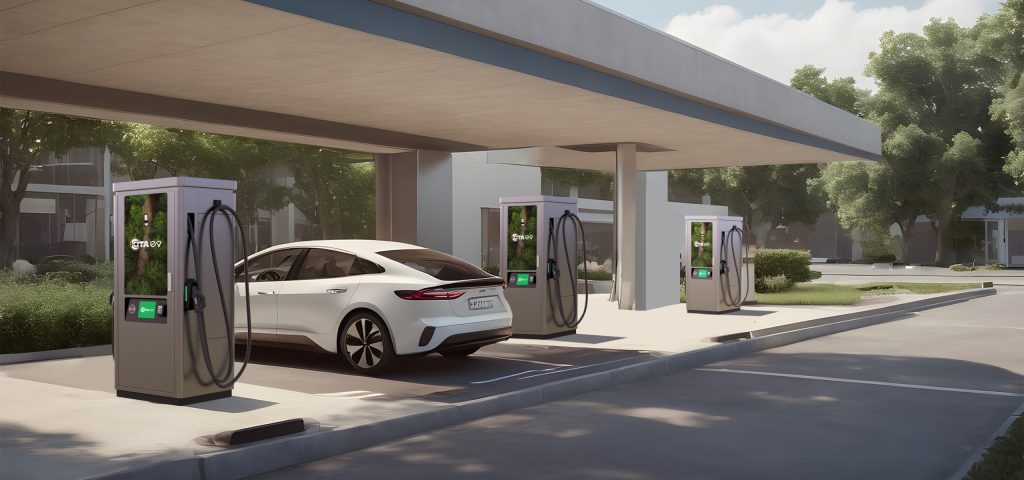
The UAE’s journey toward sustainability relies heavily on smart, dependable EV Charging, and at CITA EV Charger, we’re committed to driving that vision forward.
Our range of DEWA and ADQCC certified chargers, with robust IP65 and IK10 ratings, ensures safe and reliable performance even in the UAE’s toughest conditions.
With user-friendly features like the CITA EV App and our advanced Charge Point Management System (CPMS), you’ll enjoy complete control, smart scheduling, and effortless monitoring.
Choose CITA EV Charger to power your journey toward a cleaner, smarter future.
Connect with us today and be part of the UAE’s green revolution.
Let’s get started!



